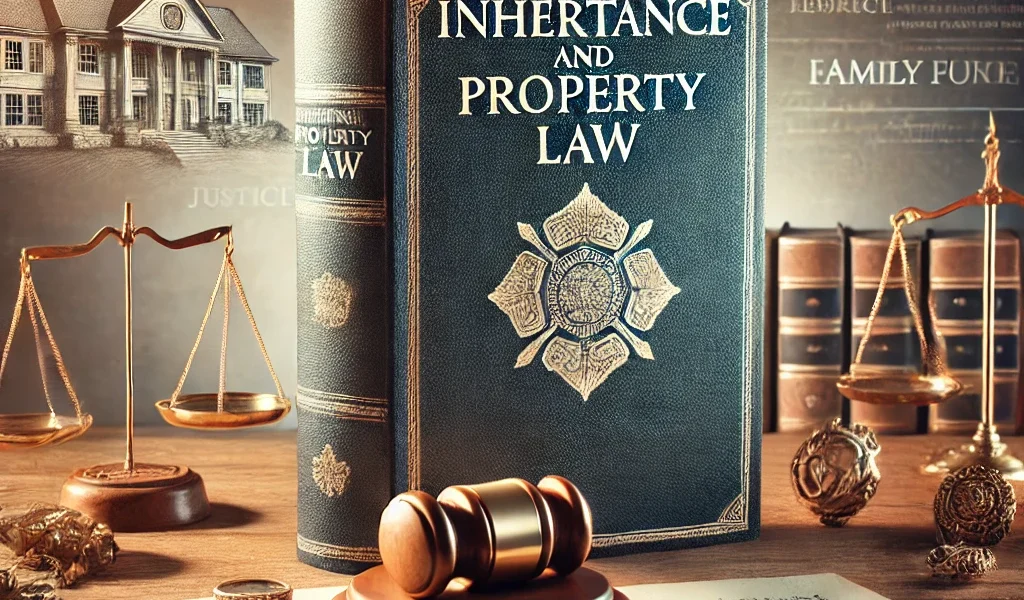Inheritance and property law is a crucial part of any society, as it governs the transfer of assets and property upon the death of an individual. The rights of heirs play a significant role in determining who inherits a deceased person’s property and under what conditions. Understanding the legal rights of heirs can prevent conflicts, misunderstandings, and potential legal battles. In this comprehensive blog post, we will explore the key aspects of inheritance and property law, the legal rights of heirs, and the process involved in property transfer.
What is Inheritance Law?
Inheritance law refers to the legal framework that governs the transfer of property, assets, and liabilities from a deceased individual to their heirs. The law determines how the property is distributed, who is entitled to inherit it, and what process must be followed to ensure a smooth transition. Inheritance laws can vary from country to country, and in some cases, they are also influenced by religion, culture, and personal preferences.
In most legal systems, inheritance laws are designed to protect the rights of family members and ensure that property is passed on to rightful heirs. These laws typically consider factors such as marriage, children, wills, and the nature of the property involved.
The Legal Rights of Heirs
The rights of heirs are established by inheritance laws and define who can inherit a deceased person’s property. Inheritance rights vary depending on whether the deceased left a will (testate) or not (intestate).
1. Heirs in Case of a Will (Testate Succession)
If the deceased person left behind a valid will, the distribution of property will follow the terms and instructions specified in the will. The legal heirs have the right to inherit according to the will, and they must respect the intentions of the deceased. However, the will must meet certain legal requirements to be considered valid.
Key aspects of testate succession include:
- Executor of the Will: The deceased person typically names an executor in the will, who is responsible for distributing the property as per the will’s instructions. The executor ensures that the legal process is followed and that the deceased’s wishes are honored.
- Legitimate Heirs: In most legal systems, the spouse, children, and sometimes other family members like parents or siblings, are considered legitimate heirs. These individuals have the legal right to inherit according to the terms outlined in the will.
- Right to Challenge a Will: In some cases, heirs may contest the validity of a will if they believe it is fraudulent, forged, or made under duress. This right to challenge is important in cases of family disputes over inheritance.
2. Heirs in Case of Intestate Succession
When a person dies without leaving a will (intestate), the distribution of property is governed by the laws of intestacy. These laws vary depending on the jurisdiction but generally prioritize family members such as spouses, children, and parents.
Key aspects of intestate succession include:
- Spouse’s Rights: In most legal systems, the surviving spouse has the right to inherit a portion of the property. The exact share depends on the jurisdiction and whether the deceased had children or other family members.
- Children’s Rights: Children, both biological and adopted, are generally entitled to a portion of the deceased’s estate. The distribution among children may be equal or vary depending on the legal framework.
- Other Family Members: If there are no surviving spouse or children, the property may be passed on to other family members, such as parents, siblings, or distant relatives, depending on the applicable laws.
3. The Role of Executors and Administrators
An executor is a person appointed in a will to carry out the deceased’s wishes. If there is no will, an administrator is appointed by the court to manage the estate. Both executors and administrators play a critical role in the inheritance process.
- Executor’s Duty: The executor is responsible for ensuring that the deceased’s property is distributed according to the will. This includes paying off any outstanding debts, managing tax liabilities, and ensuring that the assets are passed on to the rightful heirs.
- Administrator’s Duty: In the case of intestate succession, the court appoints an administrator to manage the estate. The administrator’s responsibilities are similar to those of an executor but are based on the laws of intestacy.
4. The Right to Challenge Inheritance
While heirs have the right to inherit property, there are instances where they may not agree with the distribution of assets. In such cases, heirs may choose to challenge the inheritance in court. Common reasons for contesting an inheritance include:
- Fraudulent or Undue Influence: If an heir believes the deceased was manipulated or coerced into changing their will, they may have grounds for challenging the will.
- Lack of Capacity: If the deceased was not mentally sound when making the will, heirs can challenge the will based on the claim that the deceased lacked the capacity to make decisions.
- Failure to Follow Legal Formalities: A will must meet certain legal requirements to be valid. If these requirements are not met, the will may be deemed invalid, and the estate will be distributed according to the laws of intestacy.
Types of Property That Can Be Inherited
Not all property is necessarily subject to inheritance. Certain types of property may be excluded from inheritance due to their nature or specific legal rules. Common examples of property that can be inherited include:
- Real Property: This includes land, houses, and buildings. Real property is typically a major part of an inheritance.
- Personal Property: This refers to tangible items like furniture, jewelry, and vehicles, as well as intangible items such as bank accounts, investments, and insurance policies.
- Business Interests: In the case of a family-owned business, heirs may inherit the business or a share of it, depending on the will or intestate laws.
Challenges in Inheritance and Property Law
Inheritance and property law can be complex, and there are often challenges that arise during the distribution process. Some of the most common challenges include:
- Disputes Among Heirs: In families, disagreements over property distribution are common, especially when the deceased has not clearly outlined their wishes.
- Debt and Liabilities: If the deceased had outstanding debts, heirs may be responsible for settling them before inheriting property.
- Inheritance Taxes: Depending on the jurisdiction, heirs may be required to pay inheritance taxes on the value of the property inherited.
Conclusion
Inheritance and property law are essential for protecting the rights of heirs and ensuring that property is transferred according to the deceased’s wishes or legal guidelines. Understanding the legal rights of heirs can help individuals navigate the complex process of inheritance and avoid disputes. Whether a person dies with a will or intestate, heirs must be aware of their rights and responsibilities in the distribution of property. If you are an heir or involved in an inheritance case, it is highly recommended to consult with a legal professional to ensure the process goes smoothly and avoid potential legal pitfalls.



